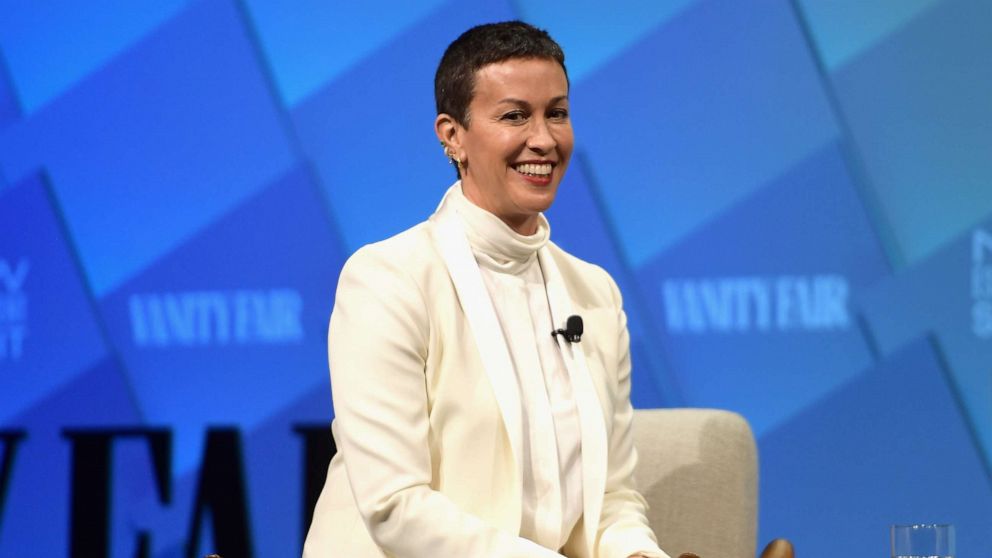


Here's something "You Oughta Know" -- Alanis Morissette took to Instagram Monday to not only announce she's working on new music, but also announce that she's expecting a new bundle of joy.
This will be the third baby for the 44-year-old singer.
"So much NEWness," she wrote, next to a slew of prayer hands.
(MORE: Alanis Morissette's 'Jagged Little Pill' is coming to Broadway)In the picture, she's signing while also showing off her growing baby bump.
Fans began freaking out over both developments. Her last album was "Havoc and Bright Lights" in 2012.
"Oh my ! She is pregnant again! And new album? I can't believe!" one wrote.
The "Jagged Little Pill" singer and her husband, Mario "Souleye" Treadway, are already parents to son Ever, 8, and a daughter, Onyx, 2.
In the past, Morissette has been very open about the postpartum depression she dealt with after both pregnancies.
"There are days I'm debilitated to the point where I can barely move," she told People magazine in 2017 after the birth of her daughter.
With the changing of the times, advancements in medicine and empowering social media movements for women, many have voiced their displeasure at the term "geriatric" pregnancy for anyone carrying a baby who is older than 35.
One of the most famous women currently expecting is the Duchess of Sussex, Meghan Markle, who at 37, no one would consider "geriatric."
(MORE: Why some doctors would still call Meghan Markle's pregnancy at 37 'geriatric')"The unfortunate thing about a term like 'geriatric' is it really puts pressure on women," Amanda Candy, a mom who first gave birth at 34, told "GMA" late last year. "It keeps you thinking about the clock ticking and the second it starts to get in your head, that's usually when you start to have problems getting pregnant."
Though the terms "geriatric," "advanced age" and "elderly" are not beloved by women of childbearing age, they do reflect a medical reality, experts told ABC News.
"It is a bit of an arbitrary cutoff, but at the same time we do understand that aging does affect pregnancy and pregnancy outcomes," said Dr. Shilpi Mehta-Lee, a maternal fetal medical specialist at NYU Langone Medical Center. "And there are more risks even after you get over the age of 40."
"All women have had our eggs since fetal life, and those are the same eggs we've had all of our lives and they just begin to divide more abnormally over time, so there are genetic risk factors," said Mehta-Lee. "And diabetes, hypertension and obesity all disproportionately affect women who are older, and those can affect how we carry pregnancy."
ABC News' Katie Kindelan contributed to this piece.